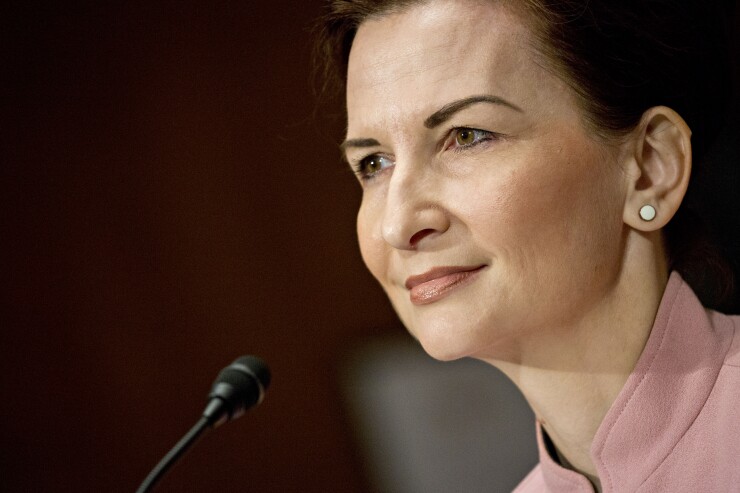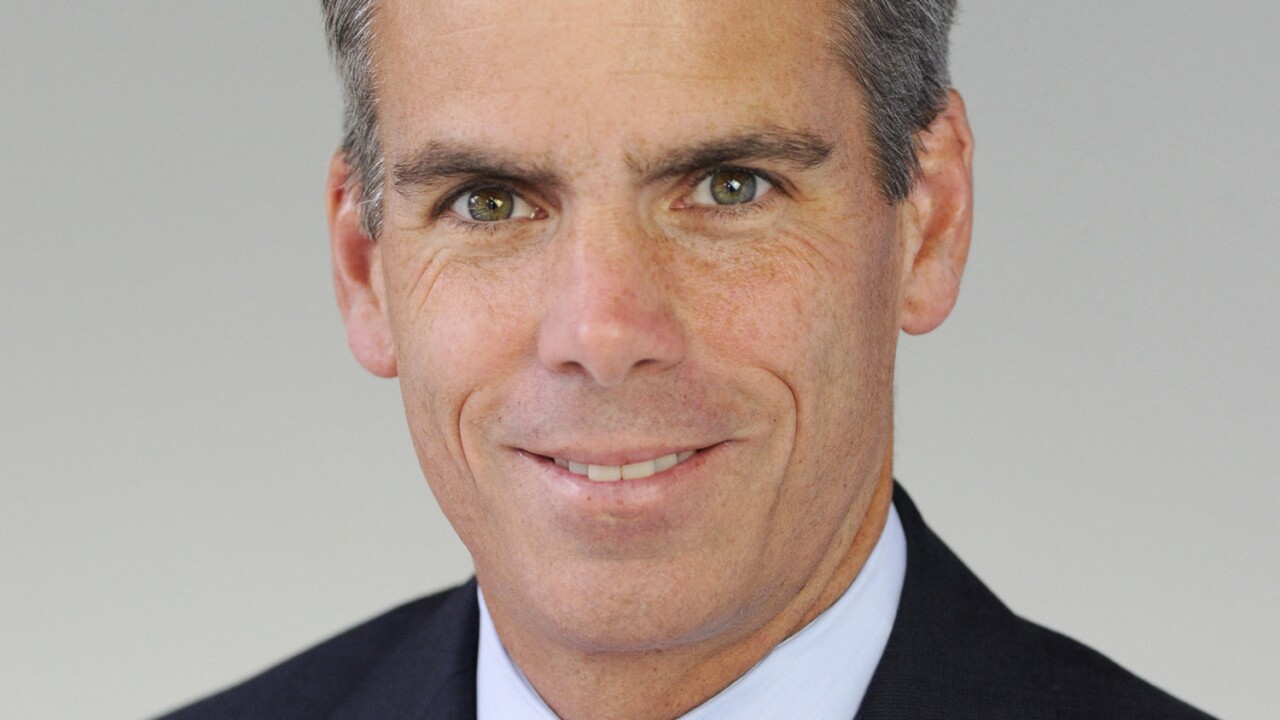WASHINGTON — The payments processor Square confirmed Thursday that it has withdrawn its application to open a depository bank, although it plans to refile with a top regulator at a later date.
The fintech startup first submitted its application to the Federal Deposit Insurance Corp. to create an industrial loan company last September. But Square no longer appears on a public list of pending new bank applications maintained by the agency.
A Square spokesperson told American Banker on Thursday that the San Francisco company plans to refile after it bolsters its application.

“We have been engaged in constructive dialogue with the FDIC, and our decision to withdraw and refile was a procedural step in the review process that will allow us to amend and strengthen some areas of our FDIC insurance application,” the spokesperson said in a statement. “Square Capital is uniquely positioned to build a bridge between the financial system and the underserved, and we continue to work closely with the FDIC and Utah DFI on our applications.”
Square filed a separate application with the Utah Department of Financial Institutions, the state where it plans to headquarter its new ILC bank. The Square spokesperson said its application with Utah’s banking department “remains active.”
Yet the spokesperson declined to comment on what needs to be strengthened in the application or when exactly it made the decision to pull its initial submission. An ILC charter, controversial within the banking industry, allows a company to have insured deposits without having to follow Bank Holding Company Act requirements.
If approved, Square would be the first company to get a green light by the FDIC for an ILC since 2008.
Community banks have long resisted ILC charters, arguing that they blur the line between commerce and banking. The industry waged its biggest battle against the charter when Walmart filed an ILC application in 2005. The retailer later withdrew its bid in the wake of strong opposition.
The Independent Community Bankers of America sent a letter to the FDIC last fall opposing Square’s application and arguing that “Congress should immediately address this issue and permanently close the ILC legal loophole before it is too late and we have huge commercial or technology firms like Amazon, Google or Walmart owning FDIC-insured ILCs.”
Square
The company was the second fintech firm to test an ILC charter last year. Social Finance applied last June,
Nelnet, a student loan servicer, also has an application pending as of June 28.
Many observers say FDIC Chairman Jelena McWilliams, who joined the agency last month, will give ILC charters a fighting chance given her recent comments on wanting to review all banks applications faster.
“The agency has a duty to the public to actually proceed. Now, that doesn’t mean that we will approve every application. That doesn’t mean that we will deny every application,” McWilliams said during a banking conference last month. “But we have to move swiftly; we can’t just sit on those applications.”
But Square may still have some work to do if it is to win approval from the agency.
“Square seems to be taking this very seriously,” said Brian Knight, director of the program on financial regulation and a senior research fellow at the Mercatus Center at George Mason University. “The FDIC could be thinking, ‘We can’t have any criticisms about you specifically if you’re the first ILC through the door in nearly a decade . . . we can’t cut any corners.' "





